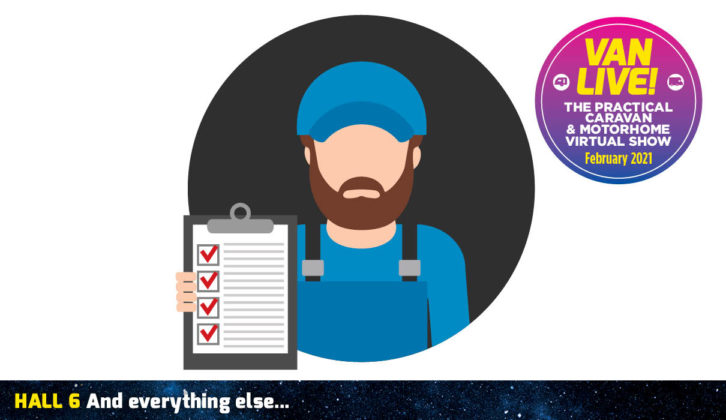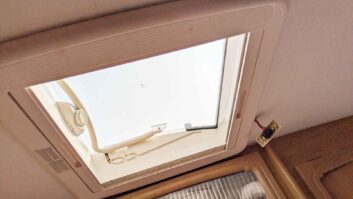I’m thinking of buying a brand new caravan, and the dealer says it will come with a warranty. That’s just like a guarantee, right?
Not exactly. The Consumers’ Association distinguishes between the two. It says guarantees are mainly focused on whether a product lives up to your expectations, and are free. Warranties, on the other hand, are more like an insurance policy, and you sometimes have to pay for them.
The main thing to remember is that a warranty should have no impact on your consumer rights. As Alicia Dunne, deputy general of the National Caravan Council, says: “The simple rule is that a warranty can add to a consumer’s rights, but it can take them away.”
NCC consumer rights adviser Peter Stonely takes this important point a step further by saying, “A seller’s liability is for the lifetime of the goods or six years (five years in Scotland), whichever is the shorter period, and the warranty cannot restrict this.”
That’s particularly important if you feel you have to reject the caravan because it turns out to be far from what you had been promised. You have a right to reject within 30 days of when you take possession of the vehicle.
If a fault develops, the dealer does have an opportunity to carry out a repair, but if the same or another fault develops within those 30 days you still have a final right to reject – and the clock stops ticking while the caravan is at the dealership.
Alicia Dunne also points out that because the caravan industry often relies on spare parts being shipped in from abroad, a “reasonable time” to carry out a repair may be longer than in other industries – especially this year, with all of the Covid-related lockdowns. But if you do exercise your final right to reject within six months of receiving the caravan, you should get a full refund. After that it might still be possible, although the seller has the right to make a reduction for use of the goods.
So a warranty should make no difference to your initial rights as a consumer. Where it could come in handy is in repairs going on after this initial period. The Consumers’ Association concedes that a warranty can give you more protection in the case of accidental damage.
So how does a warranty work?
Warranties that are provided by manufacturers in general offer to repair any defects with no cost to you as the consumer, with certain exceptions and provided certain conditions are met.
More modern caravans also have a specific water-ingress warranty, which lasts longer than the body shell warranty, often up to a decade. You can also sometimes extend the warranty, at a cost. It’s because you have to pay for them that the Consumers’ Association says such warranties are more like an insurance policy.
Finally, your dealership might also offer you its own warranty, particularly if you are buying a used caravan. These are organised by the dealer through a separate insurer, and are far more varied, so it’s not really wise to generalise about them here.
This all sounds complicated. Can I just assume most standard manufacturers’ warranties are the same?
Warranties are actually rather more varied than you might suppose, and different manufacturers’ warranties might have different terms.
In caravans, such differences possibly explain why the Caravan and Motorhome Club asks the judges of its annual Design Awards to assess the warranty offered on each entered model as part of the judging process. They are assessed for duration, flexibility (whether they can be extended) and complexity (what the consumer needs to do to comply).
Caravan and Motorhome Club technical manager Martin Spencer says you’ll probably get a better warranty if you buy from a larger manufacturer, but that is nothing to do with quality: “I suspect it’s more down to the ability of larger producers to negotiate terms with insurance providers.”
You shouldn’t assume that warranties offered by Continental manufacturers are any less good than those offered by UK companies, either.
I can rest assured that the warranty will cover most things, right?
The warranty should cover major problems with your van, but there are usually exceptions. Quite often, for example, while the warranty period might run for, say, three years, elements in the van may be covered for a shorter time.
Erwin Hymer UK, for example, offers a three-year warranty on all models produced after 2012, but windows and glass, audio equipment and exterior GRP panels are excluded for year two.
Many water-ingress warranties only cover non-opening seals. Bailey’s six-year body integrity warranty, for example, only covers degradation caused by water ingress through “permanently sealed windows or joints”. So a non-opening roof light might be OK. But if you can open it to let the air in, you might be in more tricky territory if there’s a problem.
To keep your warranty valid, you also usually have to commit to putting your caravan through a regular service, and there is often a time limit for when you have to get this done each year.
The Covid-19 pandemic has knocked this whole system about a bit. Almost every caravan manufacturer has now extended the time limit for when you need to get the work done – some more than others, or more explicitly than others. But given the continuing nature of the pandemic, it is always worth checking on an individual basis with your manufacturer or dealer about your caravan.
Can I get servicing done anywhere?
No. It has to be at a workshop that has been approved by your manufacturer, although it doesn’t necessarily have to be done at the dealership you bought the caravan from. But do bear in mind that the rate dealers are paid by manufacturers for warranty work is almost always less than what they would charge conventionally, so they might not be clamouring for it.
In addition, bear in mind that while the warranty may cover the repair, the cost of getting the caravan to the workshop will almost always have to be borne by you.
So are extended warranties worth it?
Generally, hard selling of extended warranties, which you have to pay for, particularly in industries like IT and mobile phones, has perhaps given them a bad press.
The C&MC’s Martin Spencer thinks this is unwarranted with caravans. He says, “Any extension is often related to water ingress. New construction methods should in theory limit the need for that as outfits age, but I’m not sure the evidence is there to confirm that’s the case as yet.”
I am also possibly thinking of buying a used caravan, as it is considerably cheaper. Will it have a warranty?
It might have. If you come to sell a caravan before the warranty period is up, it is usually possible to transfer the warranty to the new owner. But you have to notify the manufacturer that you are doing so, and the seller will usually have to pay a fee. As a buyer, you need to check that this has been done.
Dealers might also offer their own warranties on used models. As with everything else, these need reading over.
So are warranties worth it?
Absolutely – and they have improved over the years. You can see how they have improved on Swift’s website, where the company lists the different warranties it has applied to model years dating all the way back to 2012.
There might have been extensions to exceptions along the way, some brought about by changes in suppliers, but the general trend is definitely positive.
As an example of this, from the 2019 season, Swift started offering lifetime warranties lasting 25 years for the first owners of its Elegance and Elegance Grande models, which have been built using its SMART3 construction system.
Martin Spencer thinks that warranties have improved general standards for caravans even more than they have for motorhomes. He says, “Warranty duration is much better than it once was, with lengthy damp coverage available on many products.
“That’s usually linked to a requirement for professional annual servicing from competent service agents, which has in itself driven an improvement in the reliability and safety of outfits. If you compare caravan roadworthiness at a similar age, the difference is noticeable. Most other trailers will only have a 12-month warranty, and they will receive little, if any, routine servicing.”
Here at Practical Caravan, we occasionally hear stories about caravanners getting tangled up in disputes between different companies over who is actually responsible for the repair – disputes that have in some cases led to the caravan not going anywhere.
But Martin thinks the case has been proven: “Overall, warranties are better than they used to be, especially in terms of duration. They are definitely worth having.”
You’re in Hall 6 Advice Lounge & Event Theatre at Van Live! See what else is happening on stage, or take me to the Show Guide.
This article is based on information available in October 2020 and is intended as a general overview of common warranty questions. References to specific products are for illustration only and not intended as recommendation.
Modern caravans have a water-ingress warranty, which lasts longer than the bodyshell warranty, often up to a decade









